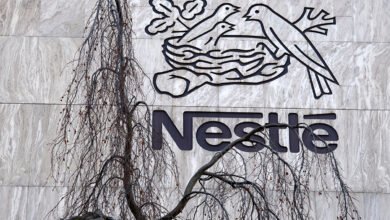
Javier Milei’s First Year: Argentina’s Poverty Rate Reaches New Peak
Argentina faces its worst modern crisis as poverty engulfs almost half of its population. President Javier Milei’s first year in office has pushed poverty rates to a staggering 45%, which means more than 20 million citizens cannot meet basic needs. The libertarian president’s radical market economy reforms attempt to revolutionize South America’s second-largest economy. These reforms have triggered massive currency devaluation and skyrocketing inflation rates. Argentine families’ daily hardships have intensified because of Milei’s vision to accept new ideas in economic liberalism. The population’s patience with his promised path to prosperity continues to wear thin.
Record-Breaking Poverty Statistics
Argentina faces a devastating poverty crisis as rates soared to an unprecedented 52.9% in the first half of 2024, rising substantially from 41.7% at the end of 2023. The country’s poverty levels have hit their highest point in 20 years, pushing roughly 3.4 million Argentinians into poverty this year.
The numbers tell a grim story of decline. The poverty rate stood at about a quarter of the population in 2017. Today, more than half of Argentina’s 46 million people live below the poverty line. The situation has grown so dire that about 15% of Argentinians now endure extreme poverty or “destitution”.
Urban areas bear the brunt of this crisis. 40.9% of city residents now live below the national poverty line. The hardest hit groups include children under 14, young adults aged 15-29, and working-class families without access to social programs.
Life in cities has become increasingly harsh. 26% of urban residents lack proper access to food and health services. Another 28% struggle without basic necessities like running water and electricity. Job prospects remain bleak with 43.8% of urban workers trapped in informal employment. These workers earn about 30% less than their formally employed counterparts.
Experts at the London School of Economics and Political Science say this rapid surge in poverty has no precedent, which shows how deeply recent economic policies have disrupted the nation. These numbers paint a heartbreaking picture for a country that has long taken pride in its middle-class heritage.
Impact of Milei’s Economic Reforms
President Javier Milei’s administration introduced dramatic economic reforms right after taking office in December 2023. The life-blood of these measures was a 50% devaluation of the peso against the US dollar that changed the rate from 400 to 820 pesos per dollar.
The government put several strict austerity measures in place:
- Reduction of energy and transportation subsidies
- Freeze on public works projects
- Cuts to federal fund transfers to provinces
- Cancellation of official advertising
- Implementation of new export and import taxes
These reforms created major economic upheaval. Many Argentinians saw their utility costs rise by more than 200% after subsidy cuts. Food prices jumped about 50% according to government data. The administration’s spending cuts helped achieve their first fiscal surplus in years, which earned praise from the International Monetary Fund.
The human toll has been heavy. Workers lost 14% of their purchasing power month-over-month at the end of 2023. The administration terminated about 30,000 public sector jobs, which represents nearly 10% of the federal workforce. Construction projects ground to a halt, leading to 200,000 lost jobs in that sector alone.
Monthly inflation dropped from 25.5% in December 2023 to 4.2% in recent months, yet annual inflation stays above 230%. The government stands firm that these painful measures will prevent economic disaster and build long-term stability.
Human Cost of Economic Transformation
Argentina’s economic transformation has taken a devastating human toll. Medical professionals now see diseases linked to malnutrition emerge at an alarming rate. Healthcare workers treat patients with conditions that were once rare in Argentina. These include scurvy and eye diseases that stem from vitamin deficiencies.
A food emergency grips the nation and children suffer the most. Medical teams report several disturbing trends:
- Patients show neurological problems and convulsions from B12 deficiency
- Vitamin A deficiency leads to corneal injuries
- Scurvy has returned after decades of absence
Community soup kitchens serve as vital lifelines but struggle to meet growing needs. These facilities now cook 23 large pots of food three times each week, up from 13 last year. Yet they cannot feed everyone who needs help. Many families face desperate choices. Some even cook over burning wood to reduce their utility costs.
Children bear the heaviest burden of this crisis. About 1.5 million kids miss their daily meals. Nutritionists find that 10% of children under five face malnourishment. This number keeps rising as food prices climb. Food quality has dropped significantly. Families eat more carbohydrates and less protein-rich foods like meat and vegetables.
Community organizations step up as essential support systems despite their own challenges. The government stopped supplying food to community kitchens, forcing local coordinators to “make magic” with limited supplies. Yet Argentinians show remarkable strength through community solidarity and mutual aid networks.
President Milei’s economic policies have revolutionized Argentina in ways nobody imagined possible. The numbers tell a heartbreaking story – over half of all Argentinians now live in poverty, and inflation has skyrocketed past 230%. Behind these statistics lie real people’s stories. Families now cook their meals over wood fires. Children don’t get enough to eat. Local communities band together at soup kitchens to share what little they have.
Doctors now treat illnesses they haven’t seen in decades. Millions of people can’t afford basic necessities and many have lost their jobs. The government points to lower monthly inflation rates and fiscal surplus as wins. Yet these achievements have come at an enormous cost to society. Milei’s market reforms, which target long-term financial stability, have completely altered daily life for millions.
This crisis makes us ask hard questions about economic reforms and protecting people’s wellbeing. Argentina faces tough times ahead. Yet its people’s strength shines through neighborhood support groups and community networks. This spirit of helping each other remains vital as the country weathers this economic storm unlike anything in its history.






